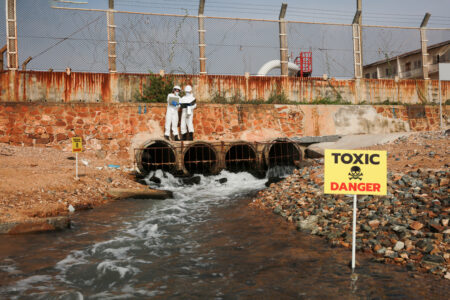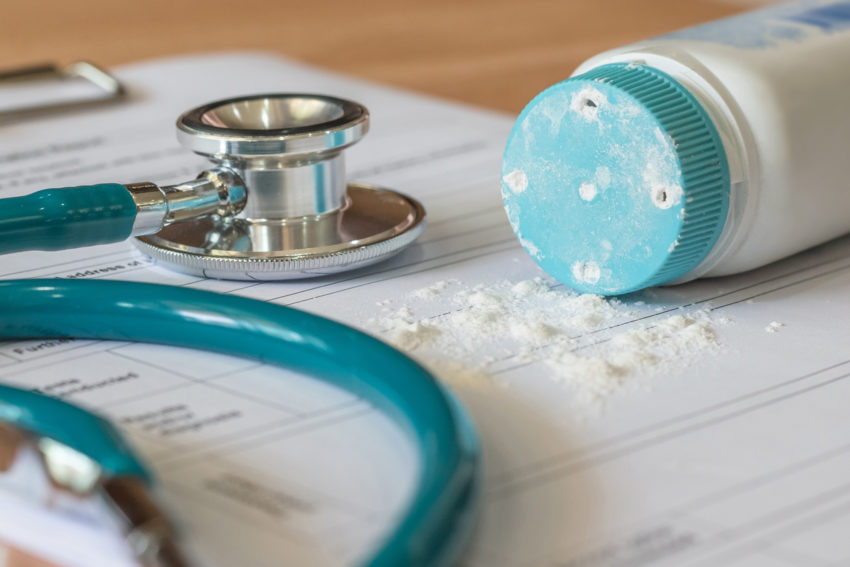
Share On Social!
A lawsuit that claims manufacturing giant Johnson & Johnson’s powder products cause cancer resulted in the company facing a multimillion-dollar payout.
The verdict, reached last week in Almeda County, California (22.5% Latino), was filed by Teresa Leavitt, who was diagnosed with mesothelioma, a cancer of tissue lining, in August 2017.
Johnson & Johnson has known about and covered up potential dangers in their talc-based products since the 1970s, according to the New York Times. The company, however, disputes these claims.
Talc-Based Products and Latinos
In the 1990s, Johnson & Johnson executed a national marketing campaign that targeted Latino and African-American women in Baby Powder advertising.
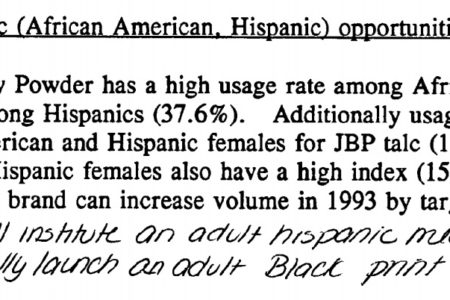
“Johnson’s Baby Powder has a high usage rate among African American (52.0%) and among [Latinos] (37.6%),” a 1992 internal Johnson & Johnson memo states. “The brand can increase volume in 1993 by targeting these groups.”
Despite prior knowledge of the possible adverse effects, the company moved forward with targeted advertising. The memo included handwritten notes to push Baby Powder specifically to Latinos through a national media program.
“For well over a half a century, tests confirmed instances in which Johnson & Johnson’s talcum powder was contaminated and yet the company moved forward with aggressively marketing its potentially dangerous product to women of color despite these consequences,” U.S. Rep. Ayanna Pressley said on the House floor.
The consequences of the coverup have impacted Johnson & Johnson, which faces multiple lawsuits over this issue.
Danger of Talc-Based Products
Asbestos, a mineral found in the same places as talcum, is a carcinogen that can cause cancer in those who are exposed.
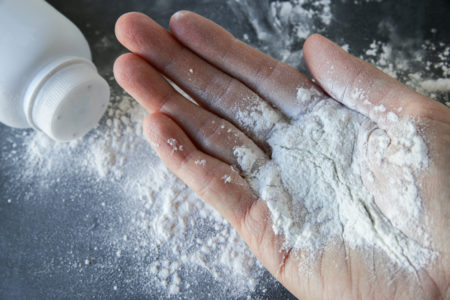 It has a long history of endangering consumers, unbeknownst to them until years later. Baby Powder specifically has reportedly caused ovarian cancer. The American Academy of Pediatrics recommends against using baby or talcum powders, which can also cause severe lung damage and breathing problems in babies, according to its website.
It has a long history of endangering consumers, unbeknownst to them until years later. Baby Powder specifically has reportedly caused ovarian cancer. The American Academy of Pediatrics recommends against using baby or talcum powders, which can also cause severe lung damage and breathing problems in babies, according to its website.
Other talc-based products are linked to developing other forms of cancer and further adverse health effects.
Latinos, who face other workplace exposure and cancer fatalities at significant margins, should be aware of different ways everyday products could be harmful.
This is not the first case Johnson & Johnson has had to shell out substantial sums concerning asbestos contamination due to lawsuits.
However, the company is pushing back on the baby powder and other rulings.
They claim testing has gone to show mixed results about the actual danger their products contain.
“This track record shows that there are one set of facts in these cases, and that decades of tests by independent, non-litigation driven experts and institutions repeatedly confirm that Johnson’s Baby Powder does not contain asbestos or cause cancer,” Johnson & Johnson spokeswoman Kimberly Montagnino said in a statement. “We believe these issues will warrant a reversal on appeal.”
Growing Concern of Talc-Based Products
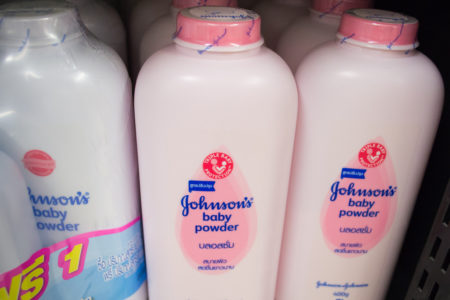 Unfortunately, Baby Powder isn’t the only asbestos contaminated product with which Latinos need to have a concern.
Unfortunately, Baby Powder isn’t the only asbestos contaminated product with which Latinos need to have a concern.
Claire’s recently recalled from its stores three cosmetic items that had claims of asbestos.
The FDA has taken action to update the current understanding of talc-based products that need regulation, but some of these products remain available on the market.
Mark Lanier, an attorney who represented 22 women that sued Johnson & Johnson claiming Baby Powder gave them cancer, thinks the issue is cut and dry. The jury of that suit seemed to agree, awarding the women and their families $4.69 billion.
“There’s no ambiguity,” Lanier told the New York Times. “It’s a no-brainer that asbestos causes ovarian cancer. That’s not an argument anyone will win.”
Editor’s Note: This article is part of a collaboration between Salud America! and the Hoffman Toxicant-Induced Loss of Tolerance (TILT) program at UT Health- San Antonio. To find out if you are TILTed due to exposure to everyday foods, chemicals, or drugs, take a self-assessment or learn more about TILT.
Explore More:
Chemical & Toxic ExposureBy The Numbers
1
Quick Survey
Can help you find out how chemically sensitive you are


